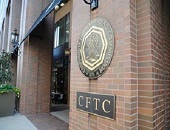One of the primary purposes of swap data reporting, as explained by James Schwartz, Counsel at Morrison & Foerster LLP, is to permit regulators to identify the swap exposures of market participants—which they found themselves unable to do during the financial crisis. Schwartz spoke as part of a four-person panel on challenges to risk data aggregation, reporting and recordkeeping organized by GARP on July 22, 2014.
Schwartz gave an overview of the US swap data reporting requirements under the Dodd-Frank Act. “It’s important to note timing,” he said with regard to U.S. Commodity Futures Trading Commission (CFTC) regulations and Basel Committee on Banking Supervision (BCBS) guidance. “The CFTC has generally been out ahead of other regulators, and it would not be surprising if its reporting rules, released in the first half of 2012, were not entirely consistent with the principles for effective risk data management and risk reporting released by BCBS the following year.”
The CFTC Data rules require three types of reporting: real-time public reporting, swap data repository reporting, and reporting for historical swaps.
 “The basic idea of real-time public reporting under Part 43 is to disseminate pricing data for swap transactions in real time,” Schwartz noted. However, the data does not include identification of the parties to the swap or, for certain large transactions, their actual notional amounts. Thus, the data “may not be especially useful to risk managers.”
“The basic idea of real-time public reporting under Part 43 is to disseminate pricing data for swap transactions in real time,” Schwartz noted. However, the data does not include identification of the parties to the swap or, for certain large transactions, their actual notional amounts. Thus, the data “may not be especially useful to risk managers.”
Schwartz described swap data repository reporting requirements under Part 45 of the CFTC’s regulations. “The detail required is quite granular,” said Schwartz, noting that Part 45 contains technical principles for Legal Entity Identifier (LEI) codes. The CFTC has convened an interdivisional working group, which has issued a request for comment on fundamental issues relating to Part 45. Schwartz gave a partial list of the important issues on which the CFTC has requested comment. [Ed. Note: the list appears on slides 15-16 of the presentation whose link is given below.]
In response to an audience question about the use of credit ratings under Part 43, Schwartz stated that credit ratings are not part of the data collected or publicly disseminated. “This in keeping with the general thrust of The Dodd-Frank Act to lessen reliance on credit ratings,” he said.
Schwartz’s overview of swap data reporting requirements under the US rules was a useful complement to Green’s summary in Part 1. ª
Click here to view the webinar. Schwartz’s portion covers slides 9 to 16.

